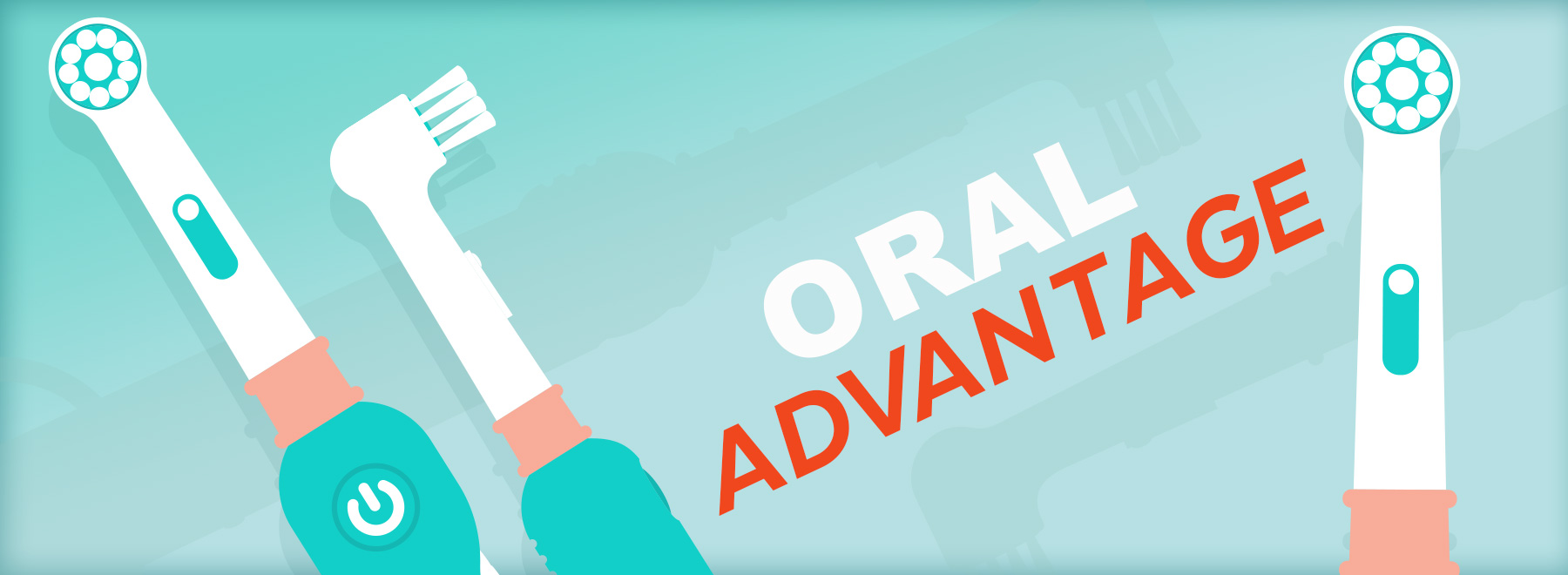For much cleaner teeth, electric toothbrushes can’t be beat
During the six months between your scheduled dental visits, it’s your job to keep your teeth and gums as clean as you can.
Choosing a good toothbrush makes it easier, and faculty in the School of Dentistry at the University of Mississippi Medical Center say an electric toothbrush might be the best tool for the task.
Like regular brushes, electric brushes come in a variety of sizes and designs that work for children and adults. These brushes use replaceable or rechargeable batteries to power a brush head that rotates and vibrates at different speeds to clean teeth and gums.

Brittany Rogel, an instructor in dental hygiene, said the additional bristle movement is what makes electric models more effective than their classic counterparts.
“The bristles on an electric brush move faster than humans can move the bristles on a manual one,” said Rogel, who uses an electric brush at home.
Dr. Jennifer Bain, associate professor and chair of periodontics and preventive sciences, also said that electric toothbrushes have an edge over conventional ones.

“Studies have shown that if a patient effectively brushes and they have no limitation in dexterity that a manual and electric are comparable in terms of plaque control,” Bain said. “However, and this is a big however, studies also show that the majority of patients do not brush the correct way for the appropriate duration and frequency.”
This appropriate method is the Modified Bass Technique, which uses angling and vibratory motions to clean the teeth and gums. Even in the most capable hands, it has its limits.
“A few years ago my electric toothbrush broke, so I used a manual one,” Bain said. “I could feel the difference (that the teeth were less clean) and I know how to brush my teeth.”
Bain compared the differences in effectiveness to cleaning dirt and grime off a porch. You can do the task with a bucket of water and a cloth, but a power washer will make the job easier and produce better results.
Bain said electric brushes are particularly useful for people who may have difficultly holding and controlling a brush, particularly younger children and people with arthritis or other dexterity issues.
Better brushing through electricity isn’t always ideal. There are a few cases where she recommends people use a manual brush, like while recovering from dental surgery or for certain kinds of gum disease.
Price can be another reason to opt for a manual brush. Electric models are more expensive and some cost hundreds of dollars. However, simple battery-powered toothbrushes and replacement heads for fancier ones start at less than 10 dollars.
Rogel said the guidelines for replacing your electric brush are about the same as those for conventional ones. She recommends using new toothbrush or replacement head “every three months, if you are sick, or if you notice splaying or fading of the bristles.”
When shopping, she recommends looking for the American Dental Association seal on the package. That means it has been tested and, with proper technique, delivers the results it claims. Even if it doesn’t have that seal, it might still be a good product.
“If you have a brush that you like to use, let your dentist check it out and get their opinion,” Bain said.
Ultimately, the best toothbrush is one that you like, feel comfortable using and use properly. For electrics, Rogel said to “let the toothbrush do the work.”
“If you press down too hard, it changes the angle of the bristles, limits their movement, wears down those bristles faster and does not clean your teeth as well,” she said.
For electric and manual styles, Bain said to brush twice a day for two minutes at a time.
“Most people brush for less than 30 seconds at a time, and that’s not effective at cleaning your teeth,” she said.
Electric toothbrush manufacturers have come up with their own ways to help users avoid rushing brushing.
“Many power brushes come equipped with timers that beep, play music or change their vibration pattern about every 30 seconds or when it’s time to move to a different quadrant of the mouth,” Rogel said.
Finally, know that even a top-of-the-line brush and dentist-level brushing habits are no substitutes for daily flossing.
“I tell my patients to only floss between the teeth that they want to keep,” Bain said.
The above article appears in CONSULT, UMMC’s monthly e-newsletter sharing news about cutting-edge clinical and health science education advances and innovative biomedical research at the Medical Center and giving you tips and suggestions on how you and the people you love can live a healthier life. Click here and enter your email address to receive CONSULT free of charge. You may cancel at any time.



